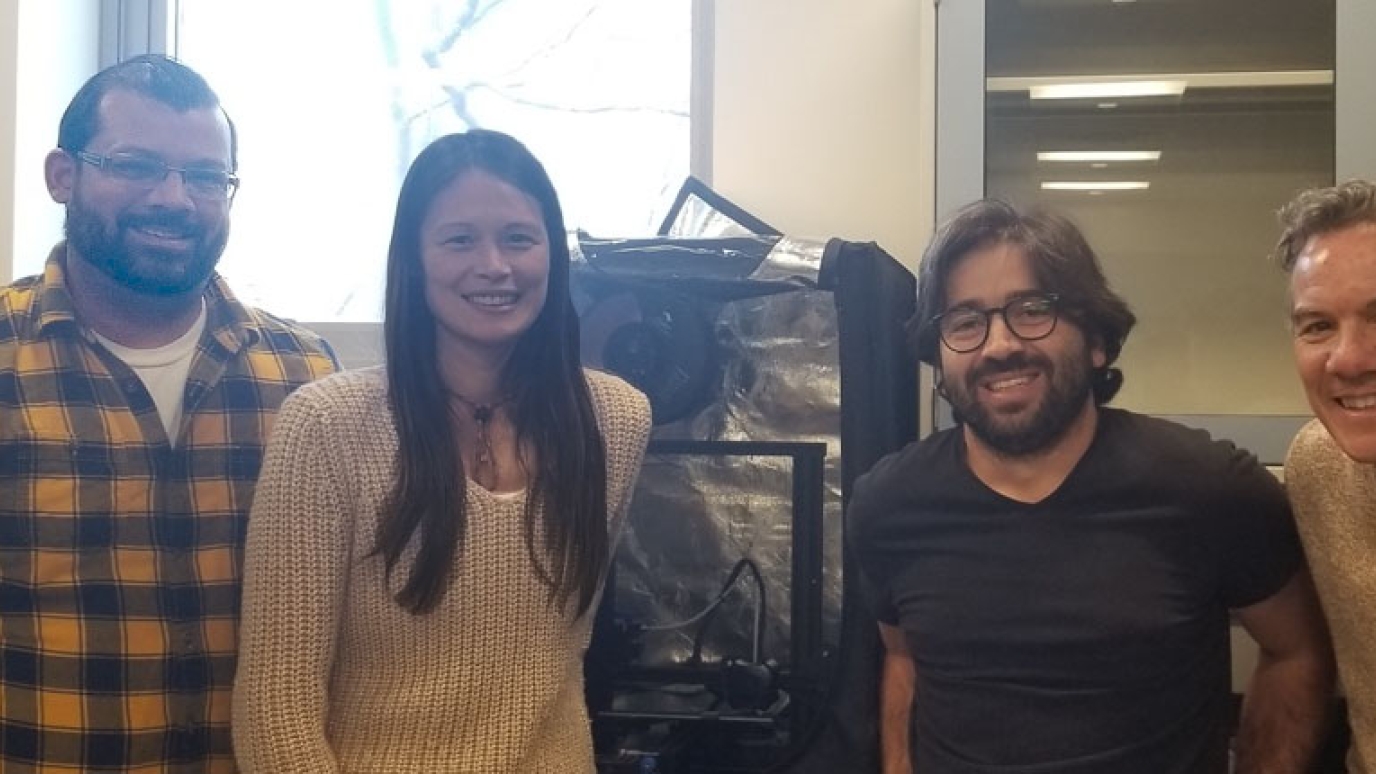
Dr. Lorenz Neuwirth from the Psychology Department and the SUNY Neuroscience Research Institute and Dr. Kinning Poon from the Biological Sciences Department, participated in a four day intensive team workshop to learn about Open Source Neuroscience hardware and software. The workshop, hosted at Stony Brook University, was part of an educational outreach pilot grant funded by the DANA Foundation.
In addition to building open-source equipment through 3D-printing, the teams also learned how to build micro-computers and use artificial neuron simulation boards and software to create a Spikeling. The Spikeling device allows faculty to build into their curriculum a representative artificial neuron system that replaces the need for using animal brain tissue, and is consistent with the 3Rs in animal research to replace, reduce, and refine as alternative teaching and research methods.
“These open-source neuroscience tools will offer enhanced faculty teaching, increased student learning, better concept formation, and hands-on applied learning for our students, that will also eliminate the need for animal brain tissue usage to teach the most critical concepts of electrophysiology and neuropharmacology. Further, these tools can be easily used in a lecture classroom and do not need a wet lab, freeing up more resources and space for other classes while enhancing the neuroscience curriculum on campus,” Dr. Neuwirth stated.
Dr. Poon said, “The sky’s the limit when costs are not a factor in teaching and conducting neuroscience research. I am particularly excited at how open-source neuroscience allows STEAM fields to intersect across different disciplines, and can lead to the creation of interesting collaborations across disciplines. You need to know some coding, some engineering, math, design, and of course, science.”
Drs. Neuwirth and Poon envision the use of open-source to complement the courses offered in the Biological Sciences and Psychology Departments as well as through the Neuropsychology Minor and microcredentials in Neuropsychopharmacology and Cognitive Neuropsychology. The training could also be used to teach students how to code, build, print, and create their own neuroscience equipment to work with faculty.
Students that are interested in learning more or getting involved with hands-on research opportunities can complete a survey or attend an upcoming workshop in February 2023. The first 40 students that register and actively participate in the outreach workshop at SUNY Old Westbury will receive a $25 VISA gift card.
The Dana Foundation is a private philanthropic organization based in New York dedicated to advancing neuroscience and society by supporting cross-disciplinary intersections such as neuroscience and ethics, law, policy, humanities, and arts. Since 2015, the DANA Foundation has supported annual neuroscience initiatives, training, and outreach opportunities such as the Annual Brain Awareness Week hosted at SUNY Old Westbury.
Banner Photo Caption: From left to right: Dr. Lorenz S. Neuwirth; Dr. Kinning Poon; Dr. Andre Maia Chagas from the University of Sussex, Brighton, United Kingdom and TReNDinAfrica, and Dr. Turhan Canli, Professor of Integrative Neuroscience at Stony Brook University.
